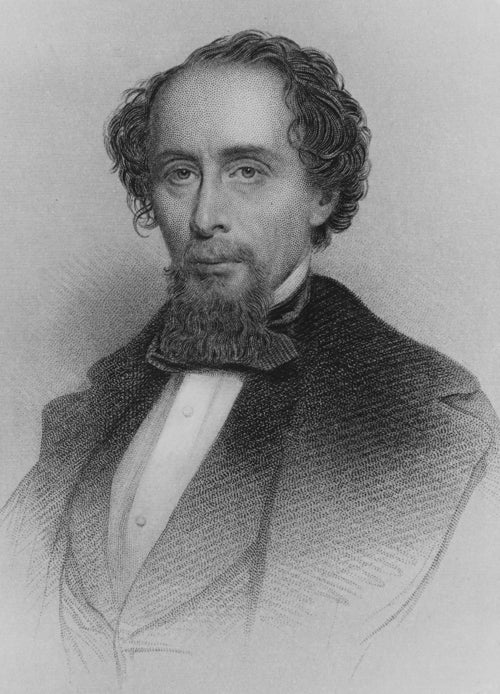Dickens family seek to overturn writer's dying wish for no memorials

Your support helps us to tell the story
From reproductive rights to climate change to Big Tech, The Independent is on the ground when the story is developing. Whether it's investigating the financials of Elon Musk's pro-Trump PAC or producing our latest documentary, 'The A Word', which shines a light on the American women fighting for reproductive rights, we know how important it is to parse out the facts from the messaging.
At such a critical moment in US history, we need reporters on the ground. Your donation allows us to keep sending journalists to speak to both sides of the story.
The Independent is trusted by Americans across the entire political spectrum. And unlike many other quality news outlets, we choose not to lock Americans out of our reporting and analysis with paywalls. We believe quality journalism should be available to everyone, paid for by those who can afford it.
Your support makes all the difference.In 1869, a year before Charles Dickens died, he wrote in his will that he wanted to be remembered for his work alone. No plaques, no statues, "no monument memorial or testimonial whatever" were to be allowed to commemorate the life of one of Britain's greatest authors.
Now, almost 140 years after his death, Dickens' final request has sparked an impassioned debate among his most ardent fans – and his family are suggesting his dying wish be laid to rest.
Seeking an appropriate means of marking the 200th anniversary of his birth, several of Dickens' descendants have come out in support of a commemorative statue at Eastgate House, Rochester, Kent, a building that appears in many of his novels, including The Pickwick Papers.
The writer's great-great grandson, Mark Charles Dickens, said a statue was "long overdue". Ian Dickens, another relative, asked: "Can you obey the desires set out in a will when numerous 'monuments' have appeared in the last hundred years?
"Like my Uncle Cedric and my cousin Mark, I endorse the call for a formal monument and if one appears in Rochester, another in Portsmouth and another in London, then hurrah to that."
But the proposal has enraged local history organisations and members of the Dickens Fellowship, who are against an idea which they feel would have mortified the modest author. Christine Furminger of the City of Rochester Society said: "Charles Dickens made his wish perfectly clear in his will and with his knowledge of the law he would not pen a document which could be misconstrued. It would be arrogant to ignore his words, which we must take at face value."
A source at Medway Council said no formal decision had been made about a statue but it had received "broad support" from councillors. Julie Shaw, the Lab-our councillor who came up with the idea, said if plans proved too contentious, she would still like a Dickens memorial in Rochester.
"I would like to see something to honour him. It does not have to be a statue. You could have a statue of one of his characters or a memorial garden," she said.
The world's only full-size Dickens statue is in Philadelphia. Created in 1894, it was sent to England as a gift from the American people. It was returned unopened by Dickens' son, incensed that his father's will had been ignored.
Deathbed requests
*The dying wish of the gun-loving writer Hunter S Thompson was for his ashes to be fired from a giant cannon mounted inside a 53ft sculpture of his trademark Gonzo fist. The cannon was lit by his friend, the actor Johnny Depp.
*Tradition holds that, as the poet Virgil lay on his deathbed, he asked those around him to burn his epic, The Aeneid. Much to the relief of later generations of academics, his wish was ignored.
*Max Brod, a trusted friend of the Prague existentialist writer Franz Kafka, refused to carry out the will of his friend, who requested that he burn his unpublished works.
*Lord Nelson added a final note to his will, in which he asked the state to take care of his mistress, Lady Hamilton, in the event of his death. He wrote: "I leave Emma Lady Hamilton a legacy to my King and Country, that they will give her an ample provision to maintain her rank in life." After he died, Lady Hamilton did not receive a penny from the state.
Join our commenting forum
Join thought-provoking conversations, follow other Independent readers and see their replies
Comments